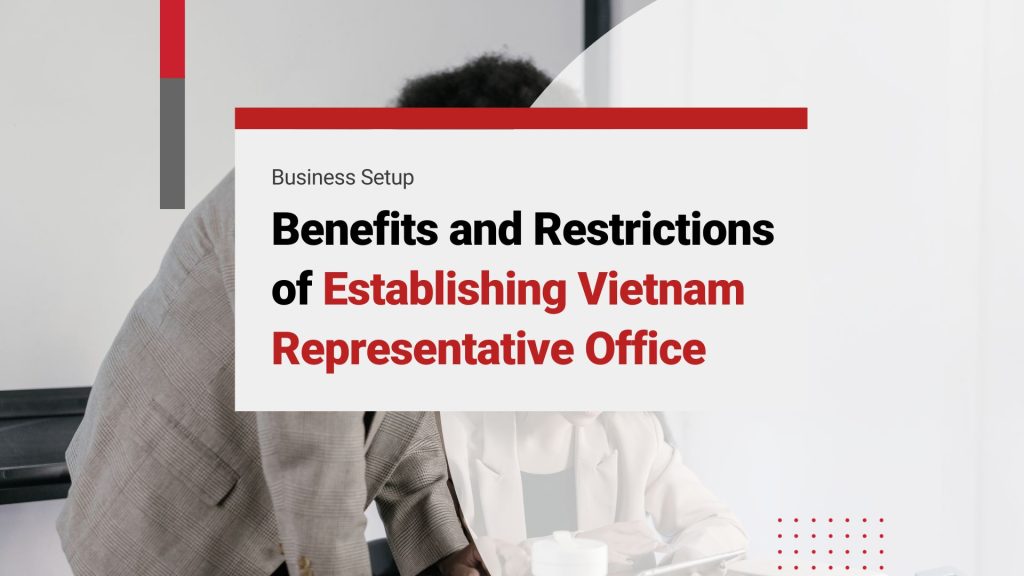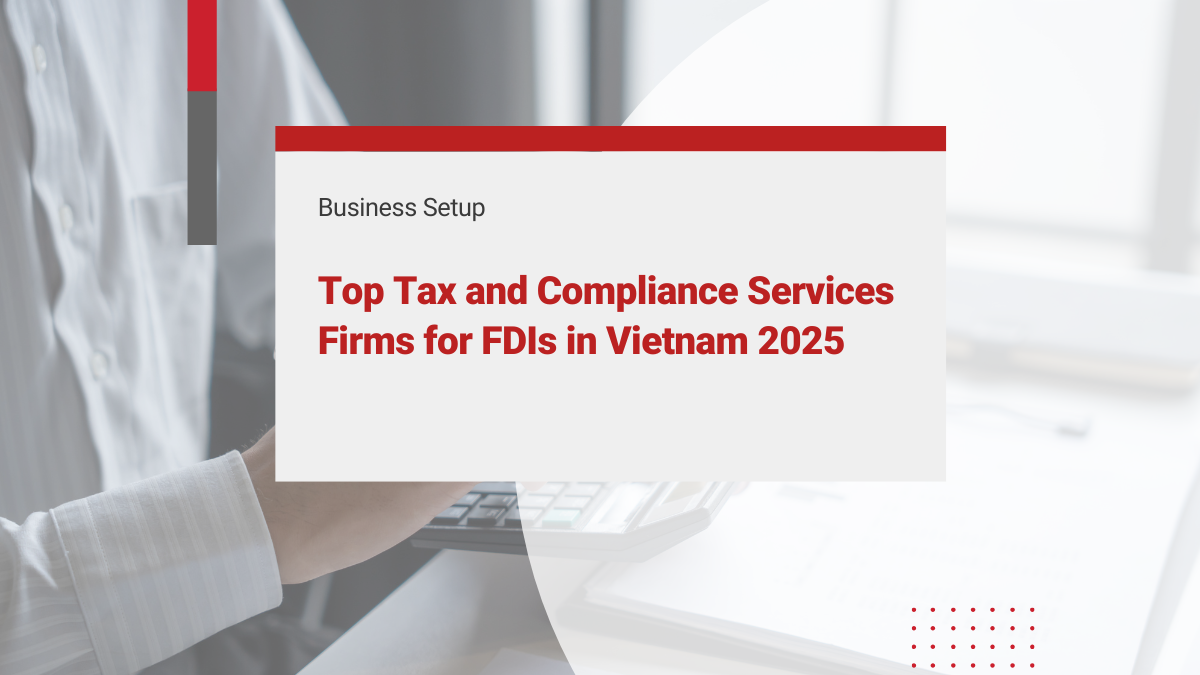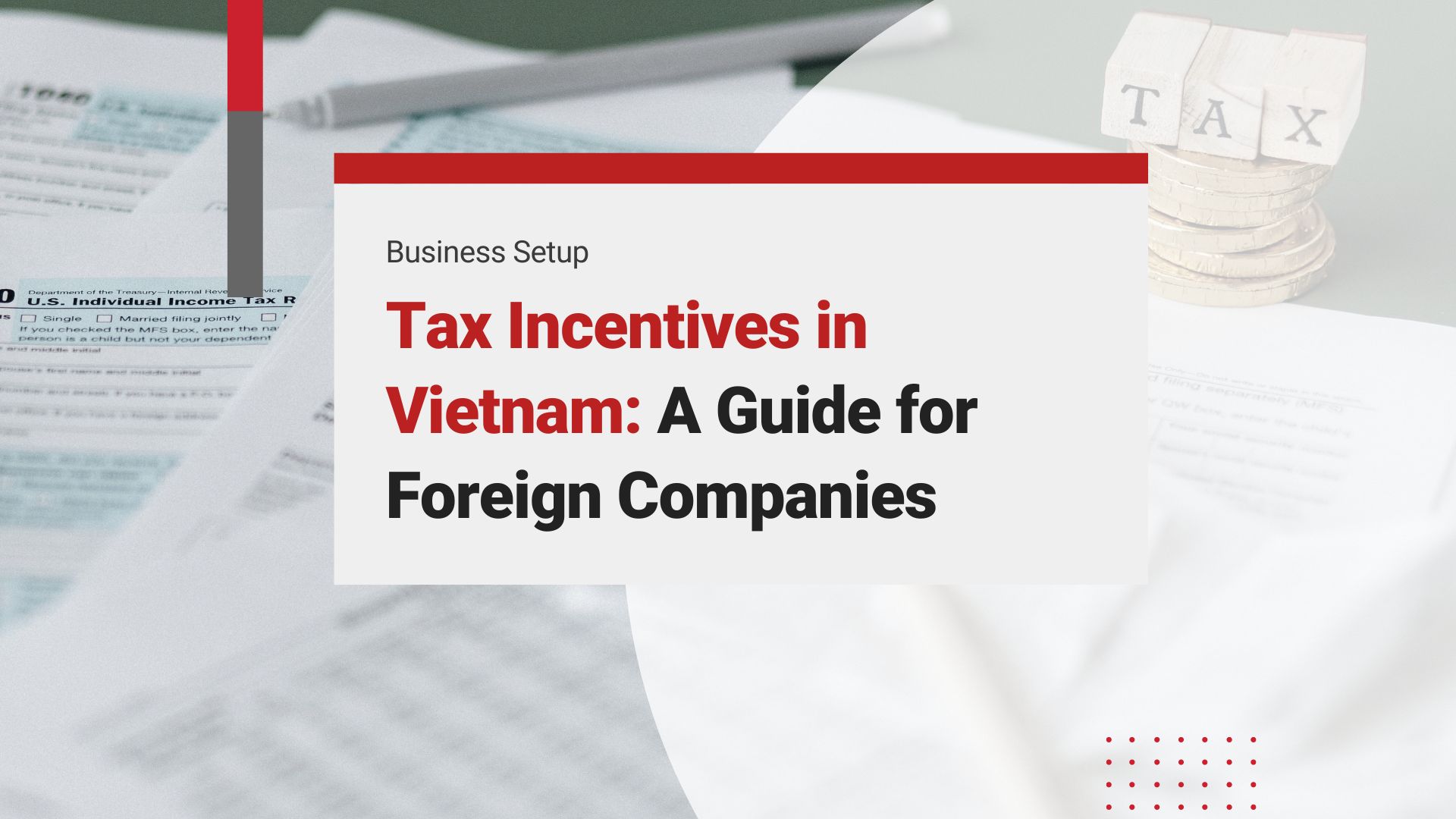When foreign companies, including startups and SMEs, consider entering the Vietnamese market, setting up a Representative Office (RO) can be a prudent first step. A representative office provides an affordable, low-risk way to establish an initial presence, “put people on the ground” and learn the market dynamics without fully committing to a limited liability company. It is typically a preliminary step taken by foreign companies before fully entering the Vietnam market or expanding their presence by establishing a complete foreign company.
Establishing a Representative Office Vietnam? Check out InCorp’s Incorporation Services in Vietnam.
By following the steps outlined in this guide, companies can navigate the requirements and procedures involved in setting up, enabling them to effectively operate and establish their presence in the Vietnamese market.
What is a Representative Office in Vietnam?
It is a commonly chosen foreign investment structure in Vietnam, enabling investors to establish their presence in the local market. It serves as a legal entity through which investors can analyze market trends before considering a limited liability company. However, it is important to note that a representative office has limited functions compared to a foreign-owned limited liability company. The primary distinction lies in that it is prohibited from engaging directly in business activities such as negotiating contracts or conducting transactions with local companies. Revenue-generating activities are not allowed for this office.
Instead, the foreign representative office in Vietnam serves as a dependent unit that supports the business operations of the parent company. It can open a resident office, recruit employees, manage and promote local business contracts, and conduct market research. Representative offices are often utilized by foreign investors in product sourcing, quality control, and facilitating communication between the head office and overseas representative offices.
Compared to branches or subsidiaries, establishing a representative office is generally simpler as they are not involved in actual business transactions and therefore face less regulatory scrutiny.
Learn more about the benefits, eligibility, and legal nuances to keep in mind with our upcoming webinar. We’ll also cover the detailed procedures, compliance obligations, and frequently asked questions on representative office setup.
Setting Up a Representative Office Vietnam
Benefits of Setting up in Vietnam
Establishing a representative office in Vietnam offers several advantages for foreign companies, especially startups and SMEs testing the waters:
- Easy Market Entry with Low Commitment: An RO provides a strategic foothold in Vietnam’s fast-growing market while avoiding the complexities of a full company setup. It allows you to understand the local market and consumer behavior firsthand and build networks without engaging in profit-making activities.
- Cost Efficiency: Compared to a branch or subsidiary, a representative office is inexpensive to establish and operate. There is no minimum capital requirement to set up an RO, and it does not need to pay corporate income tax or VAT since it cannot earn revenue. Ongoing compliance is lighter – for example, ROs are exempt from independent audits and annual financial statements requirements. The only tax-related cost is a small business license fee each year (often under US$100) instead of corporate taxes.
- Operational Flexibility: An RO can hire local and foreign staff to carry out its activities (market research, contract follow-up, liaison work, etc.) within its permitted scope. Importantly, there is no legal cap on the number of employees (Vietnamese or expatriate) that a representative office may hire, so long as their roles remain non-commercial and properly documented. This gives foreign SMEs the ability to scale their Vietnam presence gradually by adding team members as needed. (Note: While there is no headcount limit, each foreign employee – except the Chief Representative – must obtain a work permit to work at the RO.)
- Licensing and Visa Benefits: A representative office license is typically issued for five years at a time (renewable). This provides a medium-term horizon for foreign investors to operate in Vietnam. The RO license also enables the Chief Representative and foreign staff to apply for work permits and corresponding temporary resident visas (often up to 2 years validity for each, renewable), making long-term stay in Vietnam feasible.
- Simpler Shutdown: If the market entry does not go as planned or the company decides to upgrade to a different entity, closing a representative office is relatively straightforward. Since the RO has no local liabilities like customers or suppliers (due to not trading), winding it up involves fewer procedures compared to liquidating a company. This makes it a low-risk trial vehicle – you can exit with minimal fuss if necessary.
Overall, a representative office is a low-risk, low-cost springboard for foreign businesses to establish presence and credibility in Vietnam, before making a fuller investment.
Key Restrictions in Vietnam
While ROs are convenient, it’s crucial to understand their legal limitations. Vietnamese law imposes several restrictions to ensure these offices do not engage in unlicensed commercial operations:
- No Revenue-Generating Activities: An RO cannot carry out any business transaction that generates revenue in Vietnam. This means ROs may not sell goods or services, cannot issue VAT invoices, and cannot directly sign purchase or sales contracts with local companies. All sales or service contracts must be handled by the foreign parent company abroad (the RO can facilitate communications and contract execution, but not be the signatory party).
- No Trading or Production: ROs are forbidden from importing or exporting goods, distributing products, or performing any after-sales services for products in Vietnam. They also cannot engage in manufacturing or any other profit-making projects. Essentially, any activity that could be seen as doing business or generating profit in Vietnam is off-limits.
- Limited Scope of Work: The staff of an RO (including the chief rep) may only perform liaison, market research, and promotional activities for the parent company. They must not perform technical services or other billable tasks for clients. Violation of these scope limits can result in penalties under Vietnam’s commercial regulations, and any income improperly earned could be subject to taxation and fines.
- Compliance with Labor and Tax Laws: Even though ROs don’t pay corporate tax, they must fully comply with labor, social insurance, and personal income tax regulations as employers. Notably, if an RO hires staff, it must register employees for social insurance, health insurance, and unemployment insurance, and contribute the required employer portions (approximately 21.5% of salaries, plus employees contribute around 10.5%, totaling ~32% of salary towards social funds) according to local laws. The RO is responsible for withholding and remitting personal income tax (PIT) on its employees’ salaries, filing monthly/quarterly PIT reports and an annual PIT finalization. Additionally, ROs need to maintain proper records of their operations and staffing, as authorities may conduct periodic inspections (commonly every 3–5 years) to ensure compliance with these obligations.
- Reporting Duties: A representative office is required to submit an annual report of its activities to the licensing authority (usually by the end of January each year, reporting on the previous year) to demonstrate it is active and compliant. Furthermore, the RO license has an initial term (often 5 years); if the parent company wishes to continue the RO beyond that, a license renewal application must be submitted at least 30 days before expiry. Failure to renew on time can result in the license lapsing.
Important: Engaging in any activities beyond the permitted scope (for example, secretly selling goods through the RO) is illegal. Authorities can impose fines or even revoke the RO license for such violations. Moreover, the foreign company could become liable for Vietnamese taxes on the improperly generated income. It’s therefore essential for ROs to stick to their non-commercial mandate to avoid legal consequences.
Requirements for Foreign Companies
Setting up this kind of office in Vietnam is a common choice for foreign companies, with a significant number of them already operating in cities like Ho Chi Minh City, Hanoi, Binh Duong, and Dong Nai. The process of incorporating a representative office is relatively less complex as its primary purpose is to survey the market and engage in promotional activities.
Read More: Choosing the Ideal Business Location in Vietnam: The First Step of Success
Vietnam welcomes foreign businesses to open representative offices, but there are clear eligibility conditions set by law (primarily under Decree No. 07/2016/ND-CP):
- Established Foreign Company: Only a legally established foreign business entity can open an RO in Vietnam. The parent company must be incorporated and operating for at least one year prior to the RO application. (In certain cases or provinces, a two-year operating history may be expected, but one year is the minimum by law.) This requirement ensures the parent is an active, solvent business and not a shell company.
- Active Business Scope: The parent company’s business must align with sectors that Vietnam permits for foreign participation. In practice, most industries are open, especially under Vietnam’s WTO commitments, so this is rarely a barrier. However, if the company operates in a restricted or highly regulated sector (e.g. banking, education, pharmaceuticals), it may need additional ministry approvals before the RO license is granted. Essentially, the intended operations of the RO should be within the scope of the parent’s business lines and not violate any market entry conditions Vietnam has agreed to in trade treaties.
- Valid Parent Business License: The parent company must have a valid business registration certificate or license in its home country, with at least one year of validity remaining on that document at the time of the RO application. If the parent’s license or registration will expire sooner, the authorities may not issue a full 5-year RO license. In fact, the RO license’s duration cannot exceed the remaining validity of the parent company’s registration in its home country.
- No Ongoing Violations: The foreign company should not have committed serious violations in Vietnam previously. If the company (or a former RO of the company) had its license revoked in Vietnam in the past, there may be a waiting period (often 1–2 years) before it can apply again. Similarly, the parent should not be in the process of dissolution or bankrupt – it needs to be a financially healthy going concern.
- Sectors with Demand: Although not a formal requirement, it’s implied that the foreign company’s products or services have some potential market demand in Vietnam. For instance, a company in an industry totally irrelevant to Vietnam might face questions on the purpose of its RO. Generally, if your business is legitimately exploring Vietnam for opportunities, this condition is met by default.
If a foreign investor meets the above conditions, they are eligible to apply for a representative office license in Vietnam. The next step is preparing the necessary documentation.
Documents Necessary when Establishing in Vietnam
Setting up a representative office involves preparing a dossier of documents for the application. It’s critical to gather all documents carefully, as any missing or incorrectly prepared paperwork can delay the process. Below are the key documents required (with Vietnamese translations and proper legalizations):
- Application Form – An official application form (Form MĐ-1 as per Circular 11/2016/TT-BCT) needs to be filled out with details of the foreign company and the proposed RO. This form must be signed by an authorized representative of the foreign company and stamped with the company seal. (If the company lacks a seal, a notarized signature of the representative is typically acceptable.)
- Letter of Appointment for Chief Representative – A letter or decision from the parent company appointing a specific person as the Chief Representative of the RO in Vietnam. This letter should be in Vietnamese (or translated to Vietnamese) and signed by the company’s legal representative. It formally authorizes that individual to act on behalf of the company in Vietnam.
- Parent Company Business License/Certificate – A copy of the parent company’s certificate of incorporation or business registration (and any document showing the company’s business activities, if the main certificate doesn’t include that). This must be notarized and “consularized” (legalized) by the Vietnamese Embassy/Consulate in the home country of the business. The document proves the legal existence and current status of the foreign company.
- Company Charter and Financial Statements – Many cases require the parent’s charter (Articles of Association) and the latest audited financial statements or tax clearance certificate. For example, an independent audit report for the last fiscal year is often submitted to demonstrate the company’s financial health. These must also be translated to Vietnamese and notarized. If an official certificate of tax fulfillment for the past year is available, it can strengthen the application.
- Chief Representative’s ID – Copies of the passport (for foreigner) or ID card (for Vietnamese) of the proposed Chief Representative, duly translated into Vietnamese and notarized. This ensures the authorities have records of the person who will head the RO.
- Office Lease Agreement – Documents regarding the intended location of the RO in Vietnam. Typically, a Memorandum of Understanding or lease contract for the office site is required. The lease should be in Vietnamese and the landlord must be authorized to lease the property for office use. A copy of documents proving the landlord’s right to sublease (like the land use right or ownership certificate) may also need to be attached. If the office will be in an industrial zone or high-tech park, approval from the zone’s management may be needed, but generally ROs take up normal commercial office space.
- Power of Attorney (if applicable) – If the company authorizes a local consultant or individual to submit the application on its behalf, a POA letter should be prepared. This letter, in Vietnamese, should clearly empower the agent to act for the company in the licensing process.
Make sure all foreign-issued documents are notarized and then legalized by the Vietnamese consulate in the home country, and accompanied by Vietnamese translations certified by a local notary. Preparing a thorough and well-organized dossier will smooth the review process with the authorities.
For a handy checklist, see InCorp Vietnam’s: Required Documents for Representative Office
Step-by-Step Establishment Process
Once your documentation is ready, establishing the representative office involves dealing with the Vietnamese authorities for license approval. Here is the typical process in 2025:
- Submit Application to the Licensing Authority: The completed application dossier must be submitted to the appropriate licensing authority in Vietnam. In most cases, this is the Department of Industry and Trade (DOIT) of the city/province where the RO will be located (for example, in Ho Chi Minh City it’s the HCMC DOIT). If the office will be inside a special zone like an industrial park or export processing zone, the application may go to that zone’s Management Board instead. Applications can usually be filed in person, via post, or online through the government public service portals.
- Application Review: The licensing authority will check the dossier for completeness and compliance. By law, within 3 working days of receiving the application, they should inform you if anything is missing or needs correction. You will be given an opportunity to supplement or correct the dossier if needed (typically, only one round of additional requests is allowed). Once the application is deemed complete, the authorities will officially process it.
- License Issuance: Under Decree 07/2016, the Department of Industry and Trade must issue the Representative Office License within 7 working days from the date of receiving a complete and valid application. In practice, the review and approval might take slightly longer (often around 10–15 business days) depending on internal procedures or if consultations with line ministries are needed. Upon approval, you will receive the License for Establishment of Representative Office, which is the legal document allowing the RO to operate. This license will state the RO’s name, address, Chief Rep, scope of permitted activities, and its validity period (usually 5 years maximum).
- Registration with Local Authorities: After obtaining the license, some local Departments of Industry and Trade require the new RO to carry out an operational announcement. For instance, the RO may need to send a written notice to the DOIT within 45 days of license issuance, announcing the official commencement of operations on a certain date. Often, this involves publishing an announcement in a Vietnamese newspaper or online portal for several days and then submitting proof of publication to the DOIT. This step is essentially a formality to publicly declare that the RO is open for business (non-commercial business, that is).
- Timeline: Overall, from preparation to license in hand, setting up a representative office typically takes about 1.5 to 2 months in total. The licensing decision itself is quick (around 1–2 weeks once submitted), but you should account for time to gather and legalize documents internationally, time to correct any issues the authority flags, and post-licensing procedures like the announcement. Many foreign SMEs choose to work with a local corporate service firm or consultant to handle the application – this can ensure compliance and save time, navigating any bureaucratic hurdles smoothly.
Compliance Steps After Licensing
After securing the RO license, there are a few additional steps to fully operationalize the representative office and keep it compliant with Vietnamese regulations. Companies should complete the following:
- Obtain an Official Seal: The representative office will need an official seal (stamp) bearing its name, which is used for certifying documents, contracts, and daily business correspondence. Under current rules, entities can have their seal made by authorized seal-makers and then simply notify the licensing authority of the seal specimen. The Chief Representative is often responsible for overseeing the making of the seal and safekeeping it. The seal gives legal validity to the RO’s documents in Vietnam.
- Tax Code Registration: Even though an RO doesn’t pay corporate tax, it must register for a tax identification code with the local tax department. This tax code is used for its employer tax obligations (PIT, social insurance contributions) and for paying the annual business license tax fee. The registration involves submitting the RO license and application forms to the tax authority to receive the RO’s tax code number.
- Open a Bank Account: Set up a bank account in Vietnam in the RO’s name to manage its operational funds. Typically, an RO will open a VND account (for domestic expenses like salary, rent) and may also open a foreign currency account if it will receive funds from the parent company in USD or other currency. To open the account, the bank will require copies of the RO license, the seal certificate, the tax code certificate, and a board resolution or authorization letter naming the account signatories. The RO’s funds should come from overseas remittances by the parent company (since the RO cannot earn local revenue). This account will be used to pay salaries, office costs, etc.
- Hire Staff and Work Permits: With the RO set up, you can hire employees to start operations. Remember that hiring must align with the RO’s permitted scope (administrative, marketing, liaison work – not sales). All employment contracts should be in accordance with Vietnam’s labor laws. Notably, foreign employees must obtain work permits to work at the RO (the Chief Representative may be exempt from a work permit in some cases, but generally should have one if he/she is a foreigner). Work permits are applied for at the Department of Labor with the RO license and other documents. There is no limit on the number of local or foreign staff an RO can employ as long as each hire is properly documented and their role is non-commercial. Within 7 working days of signing any labor contract, the RO should notify the DOIT by submitting a copy of the contract (this is part of labor compliance monitoring).
- Social Insurance and Labor Registration: The RO must register its employees for social insurance (SI) with the local Social Insurance Fund and open a social insurance account for contributions. Vietnamese staff and any foreign staff (if eligible under SI regulations) need to be enrolled. The RO is responsible for monthly SI/HI/UI contributions and filings. Additionally, the RO may need to register labor usage with the Labor Department (a report of all employees) and ensure all foreign workers have the mandatory health check-ups and visa/permit paperwork as required.
- Periodic Tax and Report Filings: The representative office is required to file Personal Income Tax (PIT) returns quarterly (or monthly, depending on the size of payroll) and an annual PIT finalization report by the end of January each year, to report all employee income taxes paid. Although the RO doesn’t file corporate financial statements, it must submit an annual activity report to the Department of Industry and Trade (usually due by the last working day of January) detailing its operations, staff, and any changes in the year. Also, don’t forget to pay the annual Business License Tax – this is a small fixed fee (approximately VND 1–3 million, i.e. US$50–130, depending on the locality) that every RO must pay to maintain the validity of its license.
- License Renewal: Mark the calendar for when the RO license will expire (the expiry date is printed on the license). To continue the RO, you must apply for renewal at least 30 days before expiration. In practice, start preparing a couple of months in advance – gather an updated parent company certificate and any documents needed to show the RO’s continued purpose. Each renewal can extend the license up to another 5-year term (again subject to not exceeding the parent company’s main license validity). If you fail to renew in time, the license could lapse and restoration can be complicated.
Completing the above post-licensing steps will ensure your representative office is fully compliant and ready to operate within the bounds of Vietnamese law.
In summary, a representative office is an excellent interim structure for foreign companies to explore Vietnam’s market. It offers the flexibility to hire staff and build a local presence without heavy costs or commitments, while also requiring adherence to local labor and reporting laws. Many foreign startups and SMEs successfully use ROs as a bridge to eventually establishing a more permanent company once they are confident in the market potential. By following the updated guidelines and steps outlined above, investors can navigate the RO setup process smoothly and begin their Vietnam journey on solid footing.

clients worldwide

professional staff

incorporated entities in 10 years

compliance transactions yearly
Learn the Right Setup for Business
Expansion in the Vietnam
Frequently Asked Questions
What Is A Foreign Representative Office In Vietnam
- A foreign representative office in Vietnam is a liaison office established by a foreign company to conduct market research and promote business opportunities. It cannot engage in direct commercial or profit-generating activities.
What is the difference between a branch and a representative office?
- A branch is an extension of a foreign company that can conduct profit-generating commercial activities in Vietnam and must comply with corporate tax obligations. In contrast, a representative office cannot engage in business activities that generate income; its functions are limited to market research and liaison work on behalf of the parent company. A branch requires a more complex licensing process compared to a representative office. Both must be registered with the Department of Industry and Trade.






